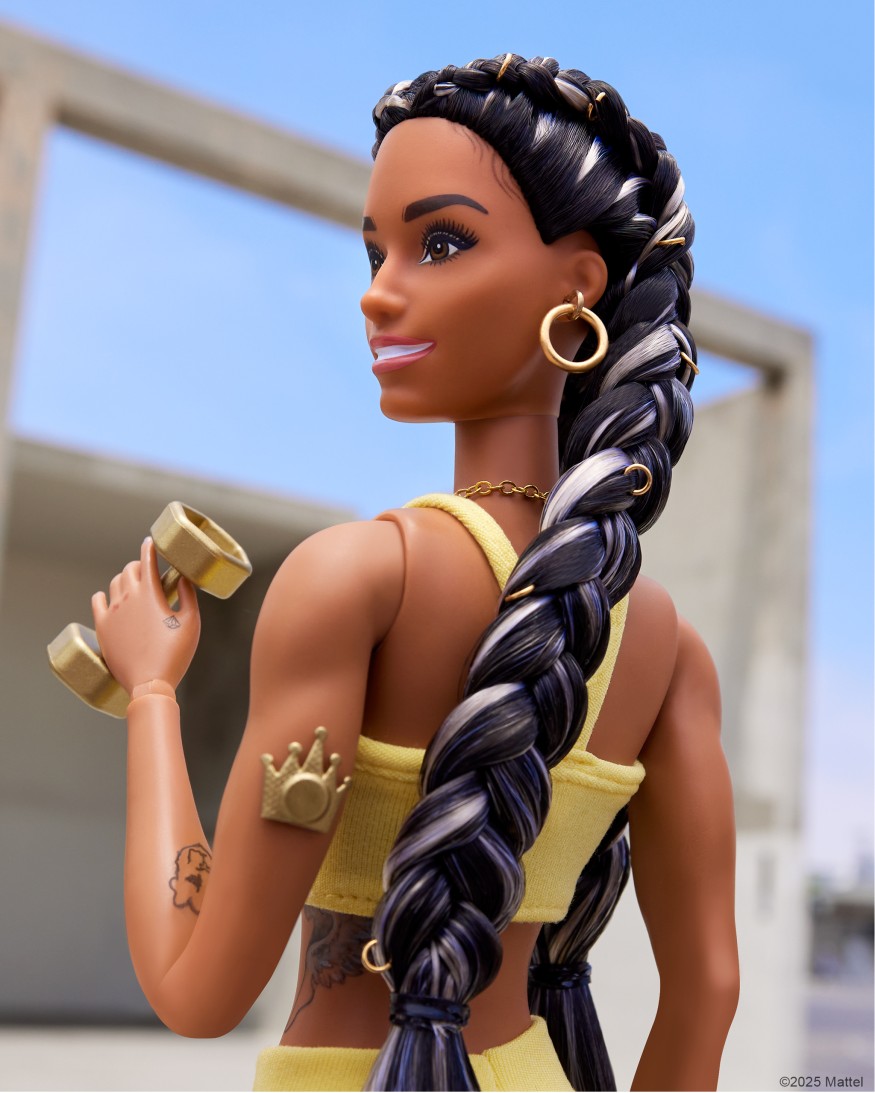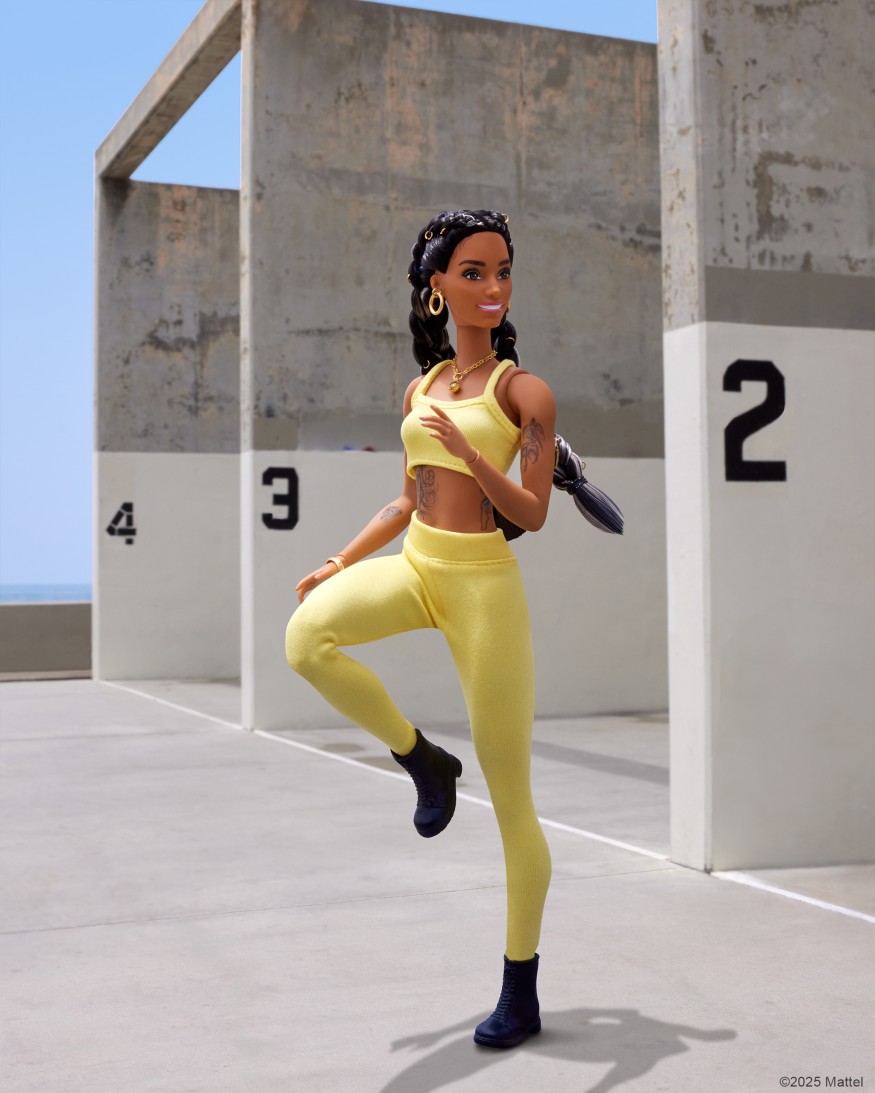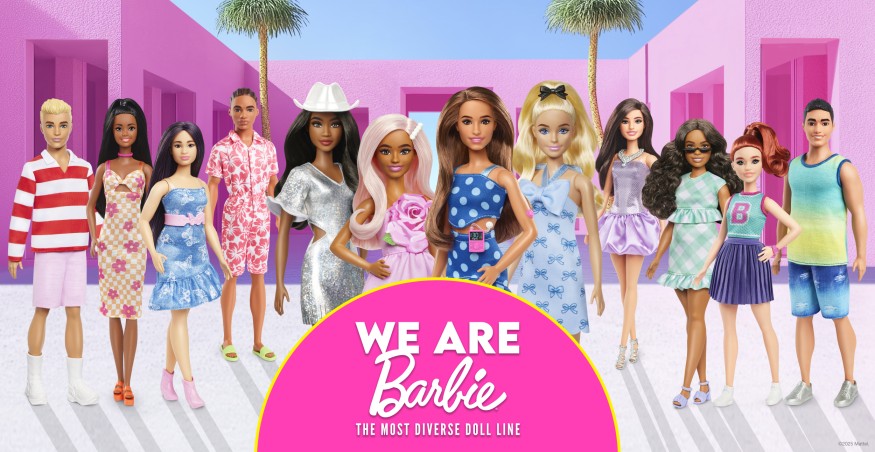Barbie Launches First-Ever Type 1 Diabetes Doll, Honors Latina Fitness Star Robin Arzón
The doll comes with a Continuous Glucose Monitor (CGM) and an Insulin Pump

Barbie just got more real—and more inclusive. Mattel has unveiled the first-ever Barbie doll with Type 1 diabetes, joining its Barbie Fashionistas line in a groundbreaking move toward better representation for children managing chronic health conditions.
The new doll comes equipped with a Continuous Glucose Monitor (CGM) on her arm, a Barbie-pink heart-shaped medical tape, an insulin pump at her waist, and a mobile phone that tracks glucose levels in real time. Dressed in a blue polka-dot outfit—a nod to global diabetes awareness symbols—she also carries a pastel blue purse, perfect for toting snacks or diabetes supplies.
The launch is more than just an aesthetic choice. It's backed by collaboration with Breakthrough T1D (formerly JDRF), the leading global organization focused on Type 1 diabetes research and advocacy. Together, Barbie and Breakthrough T1D ensured the design accurately represents the medical tools real kids use every day.
And the numbers speak to the need. According to the CDC, over 283,000 children and adolescents in the U.S. live with diagnosed diabetes. Among these, approximately 244,000 have Type 1 diabetes. While both genders are affected, studies show girls may experience more complex psychological and social challenges when living with the disease—particularly Latina girls, who are part of a demographic facing higher diagnosis rates and disparities in care access.
Latino children are 1.5 times more likely than non-Hispanic white children to be diagnosed with Type 1 diabetes. Cultural stigma, language barriers, and limited healthcare access compound the challenge, making visible representation like this Barbie doll more impactful than ever.

Adding to the celebration, Barbie also honored Robin Arzón, a proud Latina and fierce advocate for the diabetes community, with her own one-of-a-kind Barbie. Arzón is the Vice President of Fitness Programming and Head Instructor at Peloton, a New York Times bestselling author, and a 27-time marathon and ultra-marathon runner. Of Cuban and Puerto Rican heritage, Arzón was diagnosed with Type 1 diabetes a decade ago and has since made education and advocacy a pillar of her work.
"After being diagnosed with Type 1 diabetes, I found purpose in educating others because knowledge is power—especially for young minds," Arzón said. "To receive a Barbie that looks like me, even wearing her CGM patches, is surreal and deeply special."
Arzón debuted the doll live during a Peloton class on July 8, surrounded by an in-studio audience and fans tuning in across the platform.

The Type 1 diabetes doll joins the Barbie Fashionistas line—the brand's most inclusive collection to date. Since its launch, the series has introduced over 175+ diverse dolls, including those with Down syndrome, hearing aids, vitiligo, blindness, prosthetic limbs, and wheelchairs.
Children's early experiences shape what they believe is possible, and Barbie's evolving universe aims to reflect the world kids see and live in.
"We know kids learn empathy and inclusion through play," said Krista Berger, Senior VP of Barbie and Global Head of Dolls at Mattel. "With this doll, more children can feel seen, empowered, and represented."
Mattel will also donate dolls to the Breakthrough T1D 2025 Children's Congress in Washington, D.C., where 170 youth delegates living with the condition will meet with lawmakers to advocate for diabetes research and care.
In Barbie's world, representation isn't a trend—it's a mission. And for the thousands of girls, especially Latinas, living with diabetes, it's a powerful step forward in saying: You are seen. You are strong. You are unstoppable.

Originally published on Latin Times
Subscribe to Latin Post!
Sign up for our free newsletter for the Latest coverage!
© 2026 Latin Times. All rights reserved. Do not reproduce without permission.















